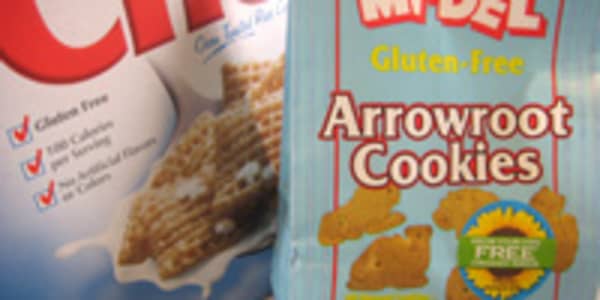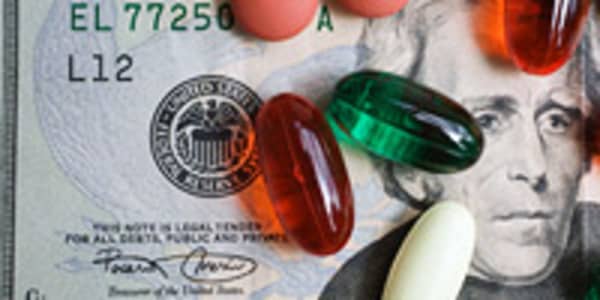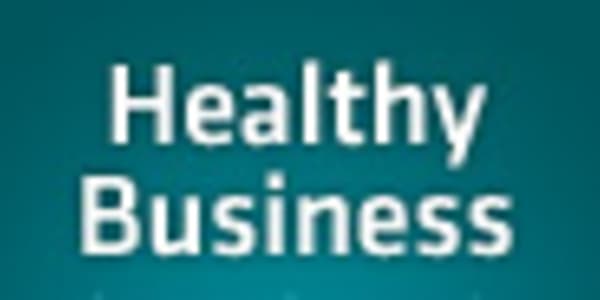Best Selling Prescription Drugs
The pharmaceutical business is an extremely profitable one. According to the IMS Institute for Healthcare Informatics, spending on medicine in the U.S. alone exceeded $307 billion in 2010. For many drug makers, one money-spinner can carry a company for years, even longer, before the patent expires and low-cost generic versions can be made.
The IMS recently released its annual list of the ten top-selling drugs in the US, based on sales. Each of them have brought in at least $3 billion dollars.
However, a majority of these drugs will lose patent protection in the next five years. Generic versions will quickly dent sales and revenue.
Here's a look at their sales, when their patent protection expires and which generic drug makers will offer alternatives.
IMS data is based on only U.S. sales and wholesaler invoice prices; it does not reflect off-invoice discount and rebates, thus total dollar sales numbers almost always exceed those provided by the manufacturers themselves.
Click ahead for the ten top-selling prescription drugs in the U.S.
By Jill Weinberger
23 May 2011
10. Epogen
2010 US Sales: $3.3 billion
Company: Amgen
Epogen is used to treat patients with a lower-than-normal number of red blood cells (anemia) caused by chronic kidney failure. Epogen stimulates the bone marrow to make more red blood cells and lessens the need for red blood cell transfusion.
Amgen has an exclusive license to manufacture and market Epogen in the U.S. under an agreement with K.A., Kirin-Amgen, Inc.
The drug first entered the U.S. market in 1989. Epogen falls under the category of biologic drugs, created by a biological process rather than a chemical one. At this point there are no legal regulatory provisions for generic versions of these drugs, which are deemed more complicated.
However, one wildcard is the possibility of the introduction of the Quality Improvement Program—a bundled payment system in dialysis—which, if approved by the Centers for Medicare & Medicaid Services, will decrease dose utilization, and therefore the sales of Epogen beginning in 2012.
9. Actos
2010 U.S. Sales: $3.5 billion
Company: Takeda Pharmaceuticals
Actos is meant to improve blood sugar control in adults with Type 2 diabetes.
The patent expired in January of 2011, but Japan-based Takeda came to an agreement with generic drug makers Ranbaxy (RBXZF) of India and Watson Pharmaceuticals (WPI) and Mylan (MYL) of the U.S., delaying the release of a generic version until August 2012.
8. Crestor
2010 US Sales: $3.8 billion
Company: AstraZeneca
Crestor is a cholesterol drug designed to help lower LDL (bad) cholesterol and raise HDL (good) cholesterol. It also slows the progressions of atherosclerosis, a condition that blocks arteries.
Crestor is one of the most profitable drugs in AstraZeneca’s portfolio.
The patent for Crestor expires in 2016, at which time generic competition will be fierce.
7. Singulair
2010 US Sales: $4.1 billion
Company: Merck & Co.
Singulair is used to prevent asthma attacks and assists in the long-term treatment of asthma. In addition, it is used to relieve symptoms of indoor and outdoor allergies.
According to its manufacturer, Merck (MRK), Singulair is the No. 1 prescribed product in the U.S. respiratory market. It is also the company’s best-selling drug.
The patent will expire in August 2012, and Merck expects that within the two years following the expiration, it will lose a substantial proportion of US sales to generic alternatives.
6. Seroquel
2010 US Sales: $4.4 billion
Company: AstraZeneca
Seroquel has been approved for a variety of conditions from depression to bipolar disorder to schizophrenia. Worldwide sales accounted for nearly 16 percent of AstraZeneca's overall revenue.
There are two variants of the drug, IR and XR. The patent for Seroquel IR, expires in 2012, while the patent for Seroquel XR is 2017.
According to AstraZeneca, Seroquel XR has been approved in 72 countries for schizophrenia, 57 countries for bipolar mania, 49 countries for bipolar depression, 33 countries for bipolar maintenance, six countries for major depressive disorder (MDD) and three countries for generalized anxiety disorder (GAD).
In the past, AstraZeneca has been under investigation for the sales and marketing of Seroquel IR , and agreed to pay substantial fines as a result.
5. Abilify
2010 US Sales: $4.6 billion
Company: Bristol-Myers/Otuska America
Abilify is used in the treatment of schizophrenia, bipolar disorder and clinical depression. According to Bristol-Myers, Abilify accounted for 18 percent of overall US sales. According to Otuska, Abilify is Otuska’s top-selling pharmaceutical, representing 30 percent of total consolidated net sales.
The US patent is set to expire in 2014, but due to a pediatric extension; a generic version will not become available until at least April 20, 2015.
4. Advair Diskus
2010 US Sales: $4.7 billion
Company: GlaxoSmithKline
Advair Diskus, generally known as Advair, is used by asthmatic patients to treat airway spasms and chronic obstructive pulmonary disease. The drug comes in two forms—the Advair Diskus, which is approved for both asthma and chronic obstructive pulmonary disease and the Advair DHFA inhaler, which is only approved for asthma.
According to UK-based GlaxoSmithKline (GSK), various patents over the Diskus delivery device exist in the US up to the year 2016, ones for the DHFA device exist until 2025. Because of this, the timing and impact of entry for a follow-on product to Advair is uncertain.
3. Plavix
2010 US Sales: $6.1 billion
Company: Bristol-Myers Squibb/Sanofi-Aventis
Plavix is an anti-clot/blood thinning drug prescribed to prevent heart attack and strokes. It is manufactured and distributed by Bristol-Myers Squibb (BMY) and France-based Sanofi-Aventis Pharmaceuticals (SNY). According to Bristol-Myers, Plavix represented 49 percent of US net sales and was a major growth driver.
BMY will lose its patent for Plavix in May of 2012. In addition, in that year, the company will also lose its patent for one of its other top sellers, the high blood pressure medicine Avapro. As a result, Bristol Myers expects a reduction in net income.
2. Nexium
2010 US Sales: $6.3 billion
Company: AstraZeneca
Nexium, also known as the purple pill, treats and relieves the symptoms and causes of acid reflux, commonly known as heartburn. Nexium was the second-best selling prescription drug in the US in 2010.
The US patent is set to expire in 2015, but there is a license agreement with Teva and Ranbaxy Pharmaceuticals to allow each to launch a generic version in the US from May 2014, subject to regulatory approval.
According to information from FiercePharma.com, an industry information website, Ranbaxy lacks FDA approval for its generic version, which has the potential to give Teva Pharmaceuticals (TEVA) exclusivity in the generic market.
Nexium has a rocky past. AstraZeneca was sued multiple times in 2004 and 2005 for its marketing of the drug, alleging that its promotion to physicians, consumers, and third party payers was unlawful and deceptive, while AstraZeneca’s pricing was unfair. Most of the cases have been dismissed but some are still ongoing and yet to be resolved.
1. Lipitor
2010 US Sales: $7.2 billion
Company: Pfizer
Lipitor, a cholesterol-lowering medication, was the best-selling prescription drug in the U.S. in 2010. Worldwide Lipitor sales accounted for approximately 18 percent of Pfizer’s total biopharmaceutical revenue.
Originally set to expire in March 2010, Lipitor’s patent was extended through an agreement with Ranbaxy Laboratories (RBXZF) in 2008, giving the company rights to produce the drug beginning on Nov. 30, 2011. Watson Pharmaceuticals (WPI) was also selected to sell a generic version of Lipitor, supplied by Pfizer.
However, there have been numerous lawsuits, including one from Mylan (MYL), which sued the FDA over the exclusivity terms for the generic version, as well as issues with Ranbaxy’s manufacturing and development processes.





